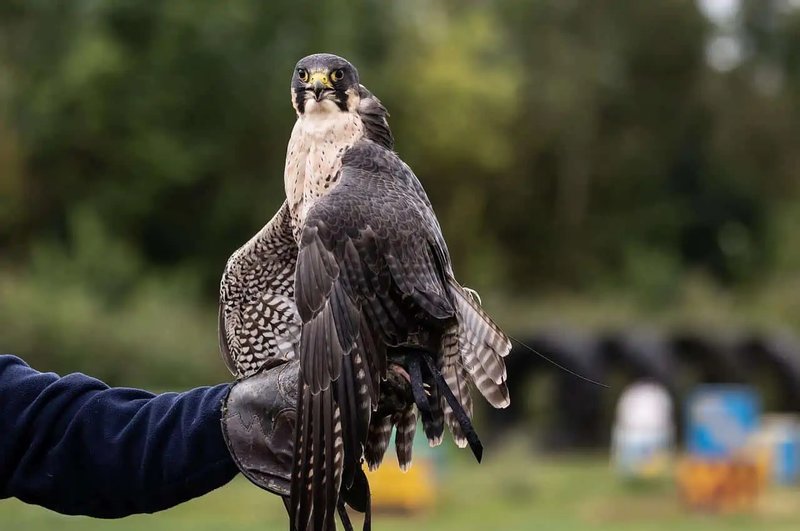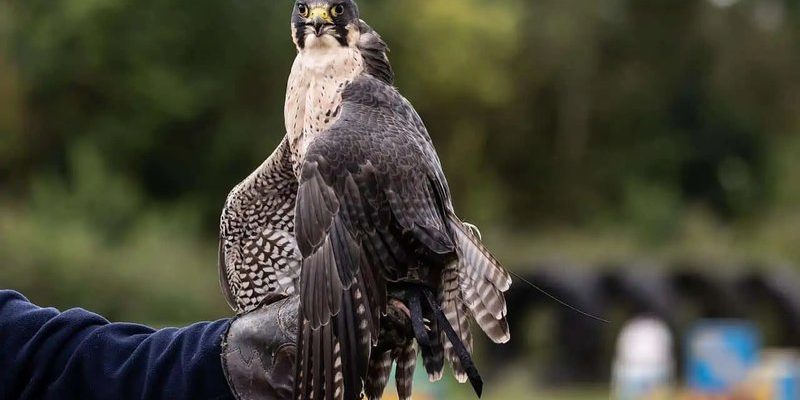
Imagine a tiny fighter jet flying through the air, capable of reaching speeds over 200 miles per hour. That’s what a falcon is like in the bird world! Just like any wild animal, though, their behavior can surprise us. Let’s explore the nature of falcons, their interactions with humans, and whether they pose any real danger.
Falcons are fascinating creatures with a range of behaviors that make them unique. These birds are primarily known for their hunting skills. They have sharp beaks and talons designed to catch and kill their prey. When it comes to hunting, they rely heavily on their incredible eyesight. Imagine being able to spot a mouse from hundreds of feet in the air—this is commonplace for a falcon.
Most falcons, like the *Peregrine Falcon*, are not naturally aggressive towards humans. Instead, they tend to shy away from people. However, if they feel threatened—especially if they are nesting or protecting their young—they may react defensively. You might be wondering what this looks like. When falcons feel their territory is at risk, they can swoop down and dive toward perceived threats, which can look intimidating, but it’s usually just a warning.
Why do falcons defend their territory?
Falcons are fiercely protective of their nests, which may contain vulnerable hatchlings. Adopting bold defensive tactics is crucial for their survival. This isn’t unlike how many animals act when their young are at risk. They might not be looking to attack you, but rather to scare you away from what they consider their home.
Are There Instances of Falcon Attacks?
While it’s rare, there have been documented cases of falcons attacking humans. It usually happens in specific situations where the bird feels threatened or provoked. These attacks can be shocking, especially if you’re just enjoying a day at the park and suddenly find a bird dive-bombing you. But let’s clarify: these encounters are not common.
When a falcon does attack, it’s generally a defensive action, not an aggressive one. For example, if a person gets too close to a falcon’s nest or if a falcon perceives a human as a threat to its territory or young, it might swoop down in a dramatic display. However, serious injuries from these occurrences are extremely uncommon. Most of the time, the bird is simply trying to frighten the intruder away.
- Watch for nesting season: Falcons are more protective when they have young.
- Stay calm: If you find yourself targeted, backing away slowly can help.
- Respect their space: Avoiding areas where they might be nesting is the best way to prevent encounters.
How Falcons Compare to Other Birds of Prey
It’s also helpful to compare falcons to other birds of prey, like hawks or eagles. While all these birds have hunting skills, their behaviors toward humans can differ quite a bit.
For instance, hawks can be more aggressive and territorial, especially if they are protecting their nest. Many people report seeing hawks dive at them during mating season. On the other hand, eagles tend to be less active around humans, often preferring to keep their distance.
Falcons, however, sit somewhere in the middle. They can be defensive, particularly during nesting season, but are generally less inclined to attack than hawks. This makes them fascinating, yet relatively safe, to observe in the wild.
Common Myths About Falcons and Danger
There are several myths surrounding falcons and their potential danger to humans. One common myth is that falcons will attack anyone who gets too close. In reality, while they can be protective, their first instinct is usually to fly away or warn you off before resorting to any aggressive behavior.
Another myth is that all falcons are dangerous because of their sharp talons and powerful beaks. While it’s true that they possess these traits for hunting, it doesn’t mean they’ll use them on humans. It’s similar to a lion—powerful and majestic, but it doesn’t see humans as prey unless provoked.
Just to clarify, if you encounter a falcon in the wild, your best strategy is to observe from a distance. They’re more interested in their hunt than in you!
How To Safely Observe Falcons
If you want to watch these incredible birds without any risk, there are some best practices you can follow. Finding a good spot for bird watching is key. Falcons often hunt near open areas, so look for places like fields or cliffs where they like to perch and scan for prey.
Here are a few tips to keep in mind:
- Bring binoculars: This will allow you to enjoy their beauty without getting too close.
- Use a camera with a zoom lens: Capture stunning shots without intruding on their space.
- Observe quietly: Minimize noise to avoid startling them.
Respecting their territory not only keeps you safe but also allows you to enjoy watching these amazing birds in their natural habitat.
In conclusion, falcons are majestic birds that generally don’t pose a danger to humans. They can defend their nests if they feel threatened, but serious attacks are rare. By understanding falcon behavior and following safety tips, you can enjoy the thrill of observing these magnificent creatures without concern.
Much like watching a thrilling sports game from the stands, it’s best to appreciate them from a distance. So, the next time you see a falcon soaring overhead, remember to respect their space and enjoy the beauty of nature.

